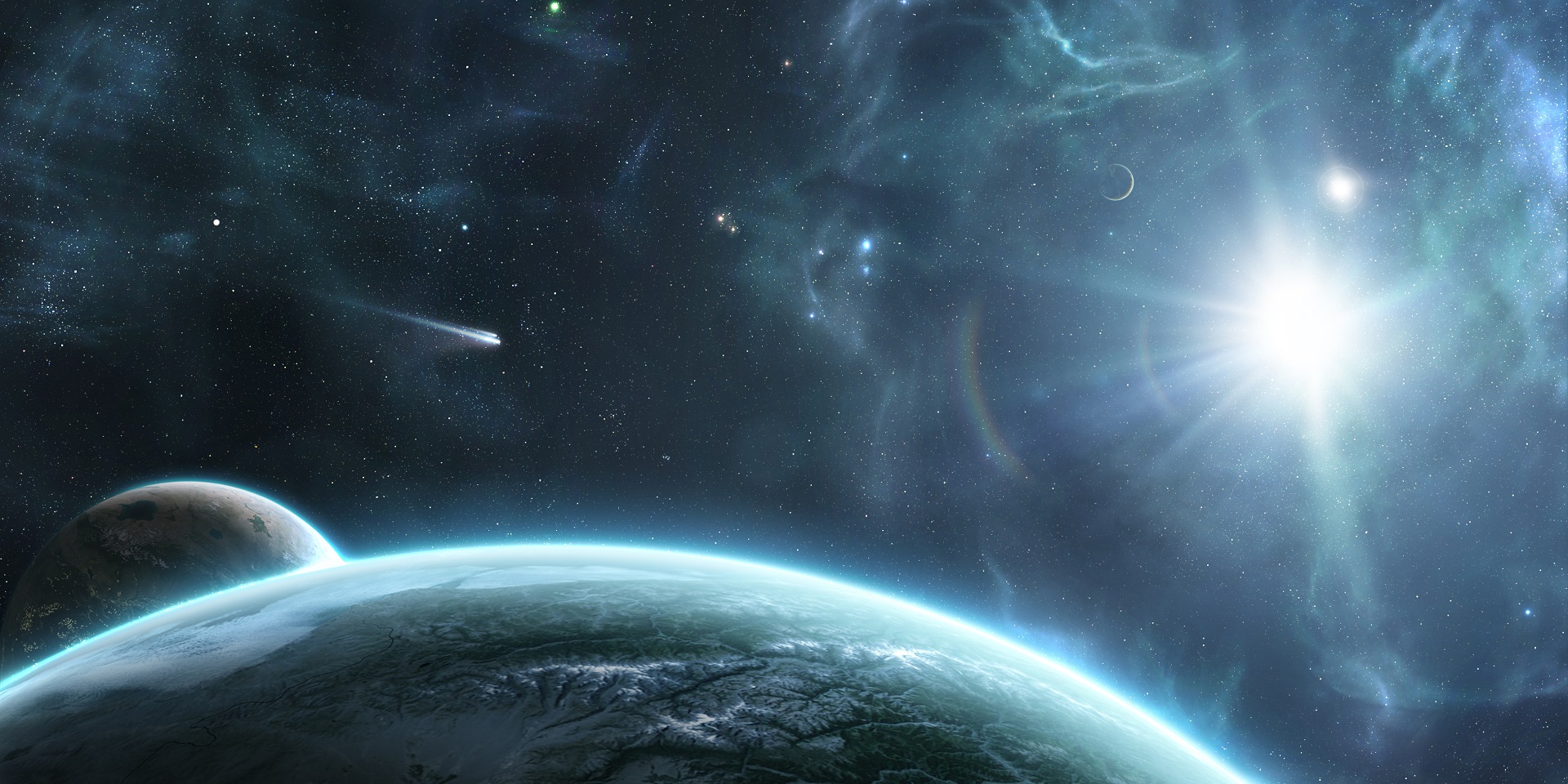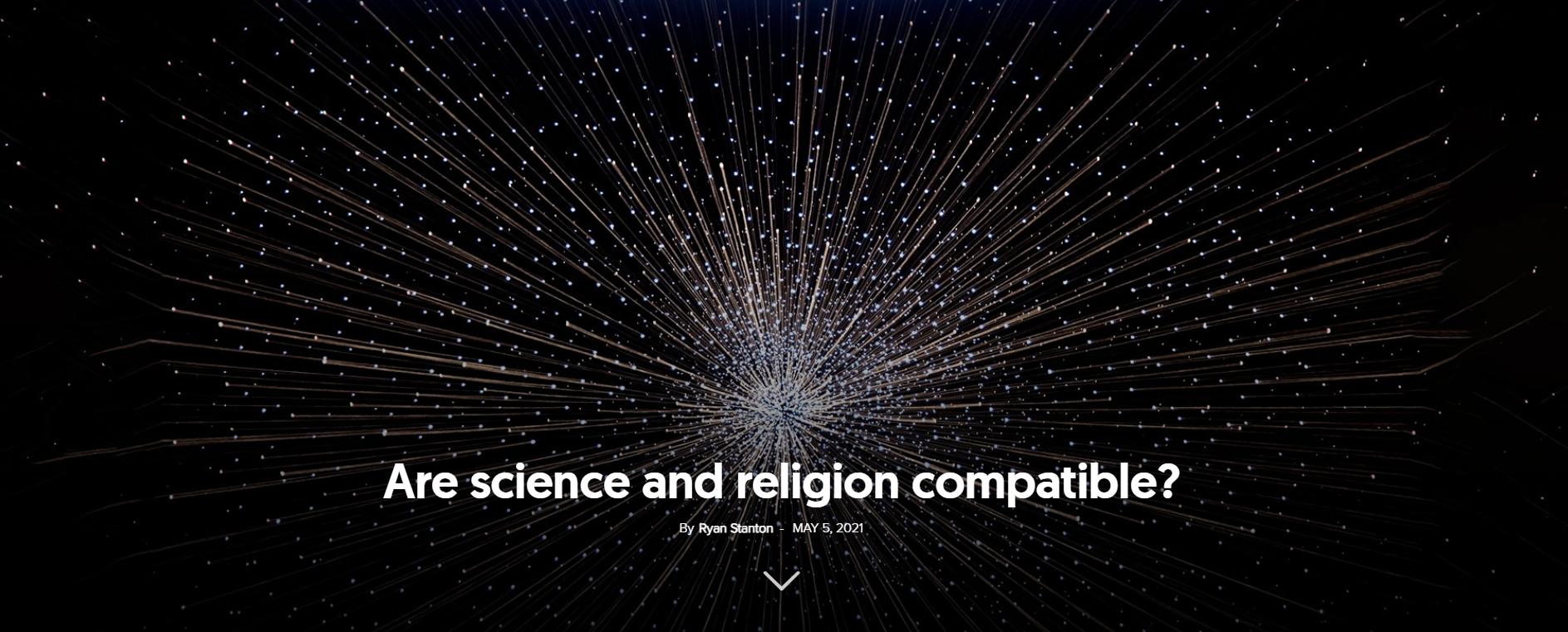Marquis Pierre-Simon Laplace (1749-1827), a mathematician and astronomer and one of history’s most influential scientists, once had a meeting with Napoleon Bonaparte. Laplace came to offer the first consul of the republic a copy of his book, “Traité de mécanique celeste” (Treatise on Celestial Mechanics)—an analysis of the solar system that expanded on Isaac Newton’s conclusions.
Napoleon greeted the scientist bluntly: “M. Laplace, they tell me you have written this large book on the system of the universe, and have never even mentioned its Creator” to which Laplace, “as stiff as a martyr,” responded to the future emperor: “Je n’avais pas besoin de cette hypothèse-là (I had no need of that hypothesis).”[1]
Two centuries later, Laplace’s alleged reply found a prestigious echo in the words of the most renowned scientist of the present, Stephen Hawking. According to the book The Grand Design (2010),[2] the Universe appeared “out of nothing” due to gravitational force, and the forces of nature are a fluke that happened in the infinitesimal portion of the Universe we inhabit. “We claim, however, that it is possible to answer these questions purely within the realm of science, and without invoking any divine beings,” Hawking says.
“All thinking men are atheists,” boldly declared American writer Ernest Hemingway, and the echoes of his statement still resonate in the speeches of contemporary atheists.
The “naive” argument…
Has science proved that God doesn’t exist? No. That’s the simple and true answer. Science cannot prove God’s non-existence, just as it cannot prove the non-existence of unicorns or other mythological beings. Such a demonstration would require omniscience, and science, through its process of theorising from the particular to the general, can’t provide definitive answers. So, is the myth “science has proven that God doesn’t exist” now shattered? Not quite.
Most atheists find such an approach to the issue naive and incomplete. For instance, Richard Dawkins relatively recently admitted: “I can’t be sure that God doesn’t exist.”[3] But Dawkins’ statement, far from being evidence of doubts about his own atheist beliefs, rather reflects an attitude similar to that of another famous atheist: “Emotionally, I am an atheist. I don’t have any evidence to prove that God doesn’t exist, but I have a strong suspicion that he doesn’t, and I don’t want to waste my time.”
Stephen Hawking himself detailed his position in a televised interview: “God may exist, but science can explain the universe without the need for a creator. ” Hawking explained Laplace’s response to Napoleon in the same way.
…and the “creative” counterargument
So, the myth at stake isn’t “Science has proven that God doesn’t exist,” but rather “Science has proven that God is not needed to explain the universe.”
The announcement by researchers at CERN regarding the discovery of the Higgs boson (the ‘God particle’) has rekindled the sensation that we are on the verge of scientifically explaining both the origin and evolution of the universe. What will happen to religion and God after this moment?
British atheist inventor Sir Arthur C. Clarke offers a potential response: “Science can destroy religion by ignoring it as well as by disproving its tenets. No-one ever demonstrated, so far as I am aware, the non-existence of Zeus or Thor—but they have few followers now.”[4]
Or, according to philosophy professor Theodore Schick Jr. from Muhlenberg College in the USA, “By demonstrating that God is not needed to explain anything, science has proven that there is no more reason to believe in the existence of God than to believe in the existence of”[5] other unreal entities.
The countdown
Indeed, in recent centuries, science has provided data and theories that contradict the teachings of the Church. Biology, geology, and astronomy have offered naturalistic explanations for what was once considered the exclusive realm of God’s work. As science fills the gaps in knowledge, religion finds fewer phenomena to explain through God’s intervention. It seems that all science needs is patience, and when the countdown reaches the point of no return, religion will completely exit the realm of reasonability, and with it, so will God.
The point of no return
Such a point doesn’t exist in reality, however, says physicist and astronomer John P. Millis from Anderson University, USA: “We’re not there yet, and as scientists, I think it’s our duty to acknowledge that we’ll never get there.”[6]
The origin of the Universe is unique, an unrepeatable ‘experimental’ event. Experiments like those in the particle accelerator at CERN can simulate original conditions, but they cannot replicate them. Uncertainties cannot be completely eliminated, so we cannot fully and absolutely explain the Universe.
Looking at things from a different angle, Christian author and apologist Gregory Koukl broadens the scope of the debate: “Some take the position that if science doesn’t give us reason to believe in something, then no good reason exists. That’s simply the false assumption of scientism.”
For instance, in the case of miracles now considered scientific impossibilities, no one can guarantee that they won’t be deemed possible in the future, given discoveries that could revolutionise our thinking, much like quantum physics has. In quantum physics, the laws of physics as we know them are insufficient to explain phenomena. God encompasses science.
The current frontline
The questions of the moment are: “What caused that primordial explosion—the Big Bang responsible for the Universe’s emergence? And why is there something there where nothing used to be?” At this point, science cannot offer clear answers, and Stephen Hawking’s theory of parallel universes[7] is not universally accepted.
Even if Hawking is correct, it would mean that our universe, which until recently represented everything that exists, must be redefined as a small part of all that exists, that is the domain we can gather information about. Ultimately, the theory of parallel universes asks us to believe in something beyond our universe, namely in other universes. However, if it’s logical to consider the existence of an infinite number of universes beyond the domain we can gather information about, how much more logical is it to believe that somewhere beyond our universe, about which we have information and which we can scientifically study (to a certain extent), God exists?
As journalist George Johnson observed,[8] those seeking the unique mathematical law responsible for the Universe’s emergence will need, if they find it, to then find another law that explains where this law came from…and ultimately explain why the Universe is mathematical, where mathematics comes from, and what numbers are.
In conclusion, science cannot prove that there is no need for God to fully explain the Universe. This was something Albert Einstein seemed to sense. Despite labeling the notion of a personal God who answers prayers as naive, he described himself as rather agnostic than atheistic: “Everyone who is seriously interested in the pursuit of science becomes convinced that a spirit is manifest in the laws of the universe—a spirit vastly superior to man….”[9]
Norel Iacob is the Editor-in-Chief of Signs of the Times Romania and ST Network.




















